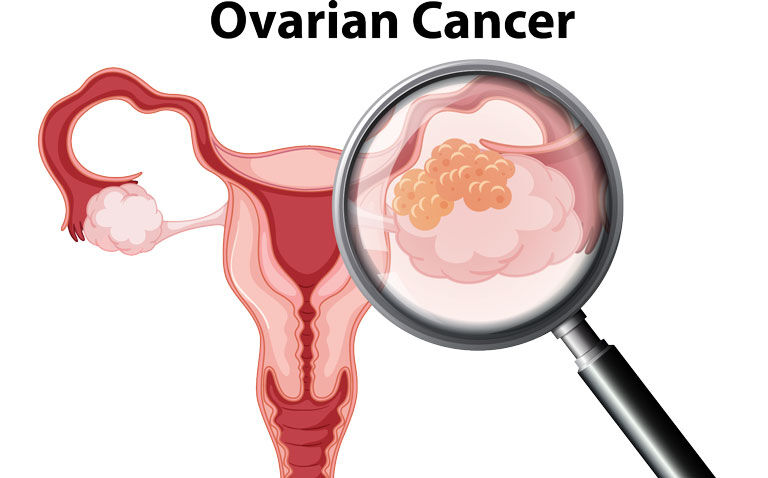An RCT found that apatinib addition to doxorubicin significantly increased progression-free survival in platinum-resistant ovarian cancer
Apatinib addition to pegylated liposomal doxorubicin (PLD) led to a significant improvement in progression-free survival compared to patients given PLD alone in platinum-resistant ovarian cancer, according to the results of a randomised trial by Chinese researchers.
Across the world in 2020, there were an estimated 313,959 incident cases of ovarian cancer (1.6% of all cancers) and which resulted in 207,252 deaths. The symptoms of epithelial ovarian cancer are generally non-specific, and include for instance, abdominal bloating, fatigue, headaches and this probably explains how around 75% of patients present with advanced (stage III or IV) disease.
Although adjuvant chemotherapy with carboplatin/paclitaxel has become standard, round 70 % of ovarian cancer patients still relapse after primary cyto-reductive surgery and first-line chemotherapy. In such cases, an emerging therapeutic option is mono-therapy with pegylated liposomal doxorubicin (PLD), docetaxel, paclitaxel, or topotecan.
However, addition of monoclonal antibodies to mono-therapy is being seen as another treatment strategy. For example, the monoclonal antibody bevacizumab, which targets all isoforms of vascular endothelial growth factor (VEGF)–A is an effective option as demonstrated in the AURELIA trial, where adding bevacizumab to chemotherapy produced a statistically significant improvement in progression-free survival and overall response rate.
Apatinib is an oral tyrosine kinase inhibitor that selectively inhibits VEGF receptor 2 and apatinib addition to oral etoposide showed promising efficacy and manageable toxicities in patients with platinum-resistant ovarian cancer.
Nevertheless, a limitation with the study was that apatinib was added to etoposide hence the authors were unable to measure the comparative effectiveness of either agent alone.
For the present study, the Chinese researchers examined the efficacy and safety of apatinib addition to PLD compared to PLD alone in platinum resistant ovarian cancer. They performed an open label, randomised trial in adult women with ovarian cancer and who had experienced disease progression during or within 6 months of discontinuing any prior platinum-based chemotherapy.
Individuals were randomised 1:1 to receive either PLD alone (40 mg/m2) intravenously every 4 weeks or apatinib addition to PLD (250 mg, orally once daily). The primary outcome of interest was progression-free survival (PFS) and which was defined as the time from randomisation to the first documented tumour progression or death.
Apatinib addition to PLD
A total of 152 patients were randomised to either apatinib and PLD (78) or PLD alone. The median age of those using the combination was 54 years.
Overall, 47.4% of patients assigned to the combination and 67.6% of those using PLD alone experienced a progression event or death. The median PFS was 5.8 months for the combination and 3.3 months in the PLD arm (hazard ratio, HR = 0.44, 95% CI 0.28 – 0.71, p < 0.01).
A post hoc analysis of updated overall median survival was found to be 23 months for the combination but only 14.4 months for PLD alone.
The most frequent grade 3 or higher treatment-emergent adverse events were a decreased neutrophil counts (14.9%) in the combination group compared with 8.3% in the PLD group.
The authors concluded that apatinib addition to PLD showed promising efficacy and could represent a new alternative treatment for women with platinum-resistant ovarian cancer.
Citation
Wang T et al. Effect of Apatinib Plus Pegylated Liposomal Doxorubicin vs Pegylated Liposomal Doxorubicin Alone on Platinum-Resistant Recurrent Ovarian Cancer: The APPROVE Randomized Clinical Trial JAMA Oncol 2022










